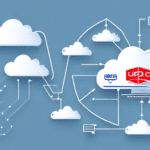Introduction to Sendcloud and ShipStation
If your business involves shipping products to customers, a reliable shipping management platform is essential for efficient operations. In this article, we compare two leading shipping management platforms – Sendcloud and ShipStation – to help you determine which solution best fits your business needs.
Overview of Sendcloud
What is Sendcloud?
Sendcloud is an all-in-one shipping platform that provides businesses with comprehensive solutions for their shipping needs. As a cloud-based software, Sendcloud offers features such as shipping automation, label printing, and package tracking. It supports integrations with over 35 carriers, including major names like DHL, FedEx, and UPS, making it an excellent choice for businesses that operate globally.
Key Features
- Shipping Automation: Streamlines the creation of shipping labels and automates tracking updates.
- Carrier Integrations: Supports over 35 carriers for domestic and international shipping.
- Inventory and Order Management: Centralizes operations for improved efficiency.
- Return Management: Simplifies the process of handling returns.
Integrations
Sendcloud seamlessly integrates with popular e-commerce platforms such as Shopify, WooCommerce, and Magento. This allows businesses to automatically import orders and start shipping with minimal setup.
Overview of ShipStation
What is ShipStation?
ShipStation is a web-based shipping and order management platform designed for e-commerce businesses of all sizes. It offers an intuitive interface that facilitates order processing, label printing, and real-time shipment tracking. ShipStation supports integrations with over 40 carriers, providing businesses with a versatile range of shipping options.
Key Features
- Automated Shipping Processes: Automates tasks like label printing and tracking updates to save time.
- Advanced Reporting and Analytics: Tracks shipping costs, order trends, and process efficiencies.
- Batch Processing: Enables mass printing of labels and fulfillment tasks.
- Customizable Automation Rules: Tailors shipping workflows to specific business needs.
Integrations
ShipStation integrates with a wide array of e-commerce platforms, including Shopify, WooCommerce, Magento, and marketplaces like Amazon. These integrations facilitate seamless order imports and streamlined shipping processes.
Comparative Analysis of Sendcloud and ShipStation
Features Comparison
Both Sendcloud and ShipStation offer robust features to enhance shipping operations:
- Sendcloud: Focuses on shipping automation, label printing, tracking, and return management with extensive carrier support.
- ShipStation: Provides label printing, order management, batch processing, and advanced reporting, with a slightly higher number of carrier integrations.
Shipping Rates Comparison
Shipping rates vary depending on the carriers and the volume of shipments. ShipStation offers discounted rates for high-volume shippers, making it cost-effective for businesses with large shipment volumes. Sendcloud provides customizable shipping options tailored to individual business needs, which can be advantageous for businesses requiring flexibility.
User Interface and Ease of Use
Sendcloud boasts a simple and intuitive user interface, making it easy for businesses to navigate shipping processes. Its straightforward onboarding process is particularly beneficial for novice users. ShipStation, while feature-rich, has a more complex interface that may require additional time for users to fully utilize its capabilities.
Integrations
Both platforms offer extensive integrations with major e-commerce platforms. ShipStation supports over 40 carriers and more than 30 e-commerce integrations, providing greater versatility for businesses operating on multiple platforms. Sendcloud also offers robust integrations but with slightly fewer options compared to ShipStation.
Customer Support
Customer support is crucial for resolving issues promptly:
- Sendcloud: Offers email, phone, and live chat support during weekdays.
- ShipStation: Provides 24/7 customer support through email, phone, and live chat, catering to businesses that operate outside standard business hours.
Pros and Cons of Sendcloud and ShipStation
Sendcloud
- Pros:
- Customizable shipping options
- Supports over 35 carriers, ideal for global shipping
- Simple and intuitive user interface
- Comprehensive label printing, tracking, and return services
- Cons:
- Integrations are fewer compared to ShipStation
- Customer support is limited to weekdays
ShipStation
- Pros:
- Integrates with over 30 e-commerce platforms, offering high versatility
- Discounted rates for high-volume shipments, making it cost-effective for large businesses
- Feature-rich user interface with order filters, batch printing, and automation rules
- 24/7 customer support availability
- Cons:
- More complex user interface may present a learning curve
- Supports slightly fewer carriers compared to Sendcloud
Choosing the Right Platform for Your Business
Best Suited for Small Businesses
Sendcloud is an excellent choice for small businesses due to its user-friendly interface, customizable shipping options, and comprehensive shipping services. Its ease of integration with major e-commerce platforms allows small businesses to efficiently manage their shipping without extensive technical knowledge.
Best Suited for Large Businesses
ShipStation is better suited for large businesses that require advanced features, such as extensive reporting and analytics, high-volume shipment discounts, and 24/7 customer support. Its ability to integrate with a wide range of e-commerce platforms makes it ideal for businesses operating on multiple channels.
Conclusion: Final Verdict on Sendcloud vs. ShipStation
Choosing between Sendcloud and ShipStation depends on your business's specific shipping management needs. Sendcloud offers a simpler, more intuitive platform with strong global shipping support, making it ideal for smaller businesses or those prioritizing ease of use. On the other hand, ShipStation provides a more versatile and feature-rich environment, suited for larger businesses that require comprehensive shipping solutions and advanced analytics.
Evaluate your business requirements, shipping volume, and budget to determine which platform aligns best with your operational goals. Both platforms offer trial periods, allowing you to test their features before making a commitment.
For more information, visit the official websites:




















